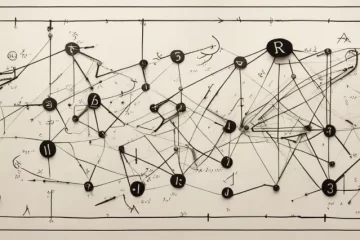The Road Less Traveled: Embracing Positive Thinking for Personal Growth

In a world that often feels burdened by negativity, finding solace in positive thinking has become an essential tool for personal growth and happiness. M. Scott Peck, the acclaimed psychologist, psychiatrist, and author of the groundbreaking book The Road Less Traveled, understood the profound impact that our thoughts have on shaping our lives. Embracing the transformative power of positive thinking, Peck’s literary masterpiece guides readers on a journey of self-discovery, illuminating the path towards a more fulfilled and meaningful existence. In this article, we delve into the empowering concepts put forth by Peck in his renowned work, offering insights and practical tools to help us adopt a mentality that can change our lives for the better.
What is Positive Thinking
Positive thinking is the practice of focusing on the positive aspects of a situation or life in general, while minimizing negative thoughts and attitudes. It involves actively cultivating a mindset of optimism, gratitude, and resilience. Positive thinking does not mean ignoring or denying challenges or difficulties, but rather approaching them with a hopeful and constructive attitude. It has been shown to have numerous benefits, including improved mental and physical well-being, increased motivation and productivity, better social relationships, and reduced stress levels.
Why is Positive Thinking Important to Us?
Positive thinking is important to us for several reasons:
1. Mental well-being: Positive thinking helps to improve our mental health and overall well-being. It allows us to approach life with a positive attitude, which leads to reduced stress, increased happiness, and improved self-esteem.
2. Improved physical health: Studies have shown a link between positive thinking and improved physical health. Positive thinkers tend to take better care of themselves, make healthier lifestyle choices, and have a lower risk of developing certain health conditions.
3. Resilience and coping skills: Positive thinking plays a crucial role in building resilience and enhancing our ability to cope with challenges and setbacks. It helps us to maintain a solution-oriented mindset, find alternative solutions, and bounce back from failures or disappointments.
4. Better relationships: Positive thinking contributes to healthier and more fulfilling relationships. When we approach others with positivity, it helps to foster trust, empathy, and understanding. It also allows us to focus on the good qualities of others and maintain harmonious interactions.
5. Increased productivity and success: Positive thinking enhances our motivation, creativity, and problem-solving skills. It helps us to stay focused, persevere through obstacles, and make the most of our abilities. This positive mindset can lead to increased productivity and success in various areas of life.
Overall, positive thinking is essential as it influences every aspect of our lives, including our mental and physical health, relationships, and overall happiness. It helps us approach life with a hopeful and optimistic outlook, leading to a better quality of life and a greater sense of fulfillment.
Unlocking Positive Thinking from The Road Less Traveled

The Road Less Traveled Introduction
The Road Less Traveled” is a self-help book written by M. Scott Peck. It explores various aspects of personal growth, human psychology, and spiritual development. Peck proposes that the journey of personal transformation is challenging but necessary for true happiness and fulfillment in life. The book emphasizes the importance of discipline, responsibility, and the willingness to confront and overcome obstacles. It discusses topics such as love, relationships, mental illness, and the nature of pain. The overall message of the book is that true spiritual growth requires a willingness to face the difficult truths about oneself and engage in the lifelong process of personal and spiritual evolution.
Positive Thinking Methods
In “The Road Less Traveled” by M. Scott Peck, the author discusses several methods and practices for fostering positive thinking. Here are some of them:
1. Acceptance: Peck emphasizes the importance of accepting reality as it is, rather than resisting or denying it. Acceptance helps in developing a positive mindset by allowing individuals to focus their energy on solving problems instead of dwelling on negativity.
2. Delaying gratification: Peck suggests that postponing immediate satisfaction and learning to tolerate discomfort can lead to long-term positive outcomes. This practice encourages individuals to resist impulsive actions and make choices that are in line with their long-term goals.
3. Discipline: The author emphasizes the importance of self-discipline as a way to cultivate positive thinking. By establishing and following a set of rules or principles, individuals can develop a sense of control, build self-esteem, and increase their chances of success and happiness.
4. Dedication to truth: Peck highlights the significance of embracing the truth, both within oneself and in relationships with others. Positive thinking is enhanced when individuals are committed to facing reality and being honest with themselves and those around them.
5. Balancing responsibility: According to Peck, positive thinking is fostered when individuals understand and accept their responsibilities in life. He emphasizes the importance of taking responsibility for one’s actions, choices, and emotions, as this empowers individuals to make positive changes and achieve personal growth.
6. Gratitude: Peck suggests that cultivating gratitude can significantly impact positive thinking. Recognizing and appreciating the blessings and positive aspects of life, even in challenging situations, can shift one’s focus towards a more optimistic outlook.
7. Active engagement: The author encourages active engagement in life as a way to foster positive thinking. This involves embracing challenges and seeking personal growth through learning, exploring new experiences, and developing meaningful connections with others.
These positive thinking methods, as presented by M. Scott Peck in “The Road Less Traveled,” can help individuals cultivate a more optimistic and fulfilled mindset.
The Road Less Traveled Quotes
The Road Less Traveled quotes as follows:
1. “Problems do not go away. They must be worked through or else they remain, forever a barrier to the growth and development of the spirit.”
2. “Life is difficult. This is a great truth, one of the greatest truths.”
3. “The truth is that our finest moments are most likely to occur when we are feeling deeply uncomfortable, unhappy, or unfulfilled. For it is only in such moments, propelled by our discomfort, that we are likely to step out of our ruts and start searching for different ways or truer answers.”
4. “Genuine love is volitional rather than emotional. The person who truly loves does so because of a decision to love.”
5. “Mental health is an ongoing process of dedication to reality at all costs.”
6. “The difficulty we have in accepting responsibility for our behavior lies in the desire to avoid the pain of the consequences of that behavior.”
7. “In order to truly grow, we must be willing to accept what is true, even if it goes against our desires or beliefs.”
8. “The authentic person lives without masks or pretensions, embracing both their light and their darkness.”
9. “Delaying gratification is a process of scheduling the pain and pleasure of life in such a way as to enhance the pleasure by meeting and experiencing the pain first and getting it over with.”
10. “The path of spiritual growth is a path of lifelong learning, accepting challenges, and continually striving to become a better version of oneself.”

More Books About The Road Less Traveled by M. Scott Peck
1. Nonviolent Communication” by Marshall Rosenberg
If you enjoyed the concepts of personal development and self-improvement in “The Road Less Traveled,” you’ll find “Nonviolent Communication” to be a compelling read. Marshall Rosenberg explores effective communication techniques, emphasizing empathy and compassion to enhance relationships. This book provides valuable insights into understanding oneself and others while fostering healthy connections.
2. The 7 Habits of Highly Effective People” by Stephen Covey
Building on the foundation laid by M. Scott Peck, Stephen Covey’s “The 7 Habits of Highly Effective People” offers a comprehensive guide to personal and professional success. Covey presents a framework that encourages character development, integrity, and effective time management. This book embraces principles vital for growth, including proactive behavior, synergy, and continuous improvement.
3. Getting Things Done” by David Allen
For readers looking to translate their newfound understanding of personal transformation into practical change, Getting Things Done” by David Allen is an ideal companion. Allen provides a systematic approach to organization and productivity, helping individuals transform chaotic work and personal lives into focused, stress-free environments. This book offers strategies and techniques to increase productivity, reduce procrastination, and achieve a sense of calm control over daily tasks.
4. Man’s Search for Meaning” by Viktor E. Frankl
Viktor E. Frankl’s powerful memoir delves into the depths of humanity’s search for purpose and meaning. Like “The Road Less Traveled,” “Man’s Search for Meaning” explores the human condition and highlights the importance of finding purpose even in the face of adversity. Frankl’s experiences in Nazi concentration camps and his subsequent development of Logotherapy present a unique perspective on personal growth, resilience, and the pursuit of a meaningful life.
5. “Daring Greatly” by Brené Brown
Building upon themes of vulnerability, authenticity, and personal growth, “Daring Greatly” by Brené Brown challenges readers to embrace their imperfections and vulnerabilities as a path to courageous living. Brown examines the transformative power of vulnerability and its role in cultivating strong relationships, boosting self-acceptance, and fostering genuine connections. This book provides valuable insights into vulnerability’s role in overcoming fears and embracing a life of authenticity.
Each of these books explores different aspects of personal growth, honing skills and understanding necessary to navigate life’s challenges. When read in conjunction with “The Road Less Traveled,” they present a comprehensive toolkit for overcoming obstacles, improving relationships, and achieving personal fulfillment.



3 Comments
Self-Care Essentials: Discover the Transformative Power of Many Lives Many Masters - singleread.com · 01/08/2024 at 10:05
[…] the following book recommendations will undoubtedly provide you with a similar sense of wonder, spiritual growth, and profound self-realization. These five books explore various aspects of the human mind, […]
Achieving Spiritual Enlightenment: An Essential Guide through The Monk Who Sold His Ferrari - singleread.com · 01/19/2024 at 16:16
[…] the book. The Monk Who Sold His Ferrari offers a comprehensive guide to personal transformation and spiritual growth, so I encourage you to explore the book further for a more detailed understanding of these […]
Range: Embracing Self-Help Strategies for Personal Growth and Success - singleread.com · 02/04/2024 at 00:06
[…] Self-help refers to a genre of literature, tools, activities, and resources that aim to improve one’s personal growth, well-being, and quality of life. It typically involves individual effort and self-guided activities that address specific areas of life, such as emotional well-being, mental health, relationships, career development, personal finance, physical health, and spiritual growth. […]